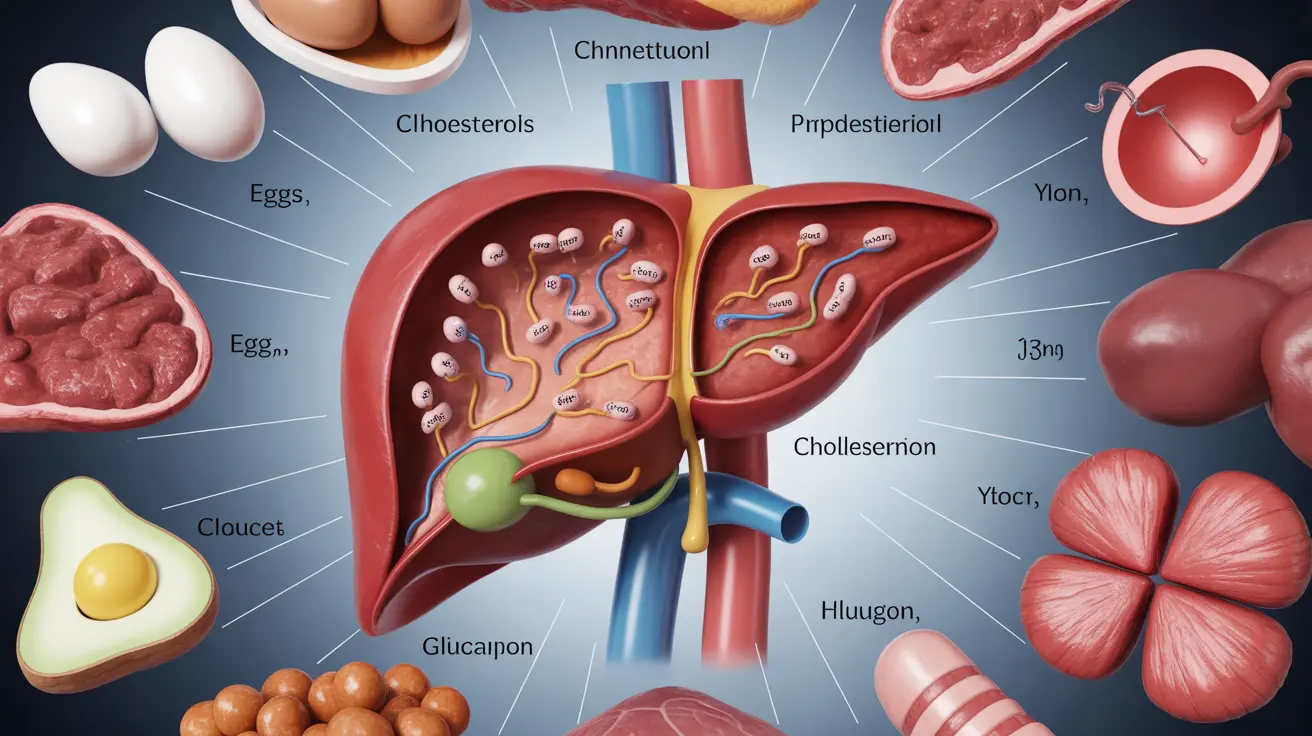Cholesterol plays a vital role in our body's functions, but many people wonder about its origins and how it affects their health. Understanding where cholesterol comes from is crucial for managing healthy cholesterol levels and making informed lifestyle choices.
This comprehensive guide explores the sources of cholesterol, how your body produces and regulates it, and the various factors that influence cholesterol levels in your bloodstream.
The Two Main Sources of Cholesterol
Cholesterol in your body comes from two primary sources: internal production and dietary intake. Understanding these sources helps explain why managing cholesterol levels involves more than just dietary changes.
Your Body's Natural Cholesterol Factory
The liver serves as your body's primary cholesterol production facility, manufacturing approximately 80% of the cholesterol in your system. This process is essential because cholesterol is needed for various bodily functions, including hormone production, vitamin D synthesis, and cell membrane formation.
Dietary Cholesterol Sources
The remaining cholesterol comes from the foods you eat, particularly animal-based products. However, dietary cholesterol typically has less impact on blood cholesterol levels than previously thought, as your body adjusts its production based on intake.
How Your Body Regulates Cholesterol
Your liver acts as a sophisticated control center for cholesterol regulation, adjusting its production based on various factors, including dietary intake. When you consume more cholesterol-rich foods, your liver typically reduces its cholesterol production to maintain balance.
The Role of Different Cholesterol Types
Understanding the difference between HDL (high-density lipoprotein) and LDL (low-density lipoprotein) cholesterol is crucial. HDL helps remove excess cholesterol from your bloodstream, while LDL can contribute to arterial plaque buildup when levels are too high.
Foods That Impact Cholesterol Levels
While dietary cholesterol itself may have less impact than once believed, certain foods can significantly affect your blood cholesterol levels:
- Saturated fats (found in red meat and full-fat dairy)
- Trans fats (in processed foods)
- Foods high in dietary fiber (which can help lower cholesterol)
- Plant sterols and stanols
- Omega-3 rich foods
The Genetic Factor in Cholesterol Production
Genetics plays a significant role in how your body produces and processes cholesterol. Some people may naturally produce more cholesterol or process it differently due to their genetic makeup, which can affect their overall cholesterol levels regardless of diet.
Frequently Asked Questions
Where does cholesterol in the body primarily come from—liver production or diet? The majority of cholesterol (about 80%) is produced by your liver, while only about 20% comes from dietary sources. This internal production is essential for various bodily functions.
How does the liver regulate cholesterol levels when I eat foods high in cholesterol? The liver adjusts its cholesterol production based on dietary intake. When you consume more cholesterol-rich foods, your liver typically reduces its production to maintain balance. This sophisticated regulatory system helps maintain appropriate cholesterol levels.
Which foods contribute most to raising blood cholesterol levels? Foods high in saturated and trans fats have the most significant impact on blood cholesterol levels. This includes red meat, full-fat dairy products, processed foods, and certain tropical oils. These foods affect how the liver processes cholesterol more than dietary cholesterol itself.
What is the difference between good (HDL) and bad (LDL) cholesterol? HDL (good) cholesterol helps remove excess cholesterol from your bloodstream and returns it to the liver for processing. LDL (bad) cholesterol can build up in your arteries, potentially leading to cardiovascular issues. Maintaining healthy levels of both types is important for overall health.
Can genetics affect how much cholesterol my body produces and how it handles dietary cholesterol? Yes, genetics significantly influence both cholesterol production and processing. Some people may naturally produce more cholesterol or process it differently due to their genetic makeup, which can affect their cholesterol levels regardless of diet. This genetic factor explains why some people may need medication to manage their cholesterol levels despite maintaining a healthy lifestyle.




